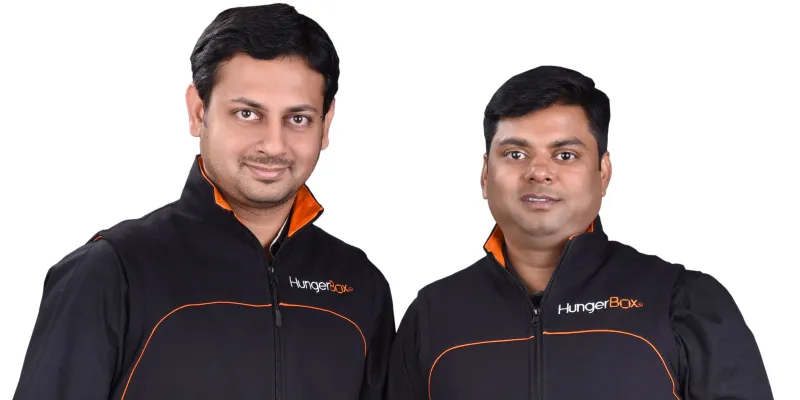[The F Word] HungerBox raises $4.5 M in Series A investment led by Neoplux and Sabre Capital
Bengaluru-based B2B food tech startup HungerBox has raised Series A investment of $4.5 million. This round was led by Neoplux, a South-Korean investment firm and Sabre Partners. The round also saw participation from existing investor and Infosys Co-founder Kris Gopalkrishnan and Lionrock Capital.
The funds raised will be used to fuel HungerBox's growth, and the company's expansion into the South East Asian market. HungerBox claims to have over six million orders a month across 160 digital cafeterias that it manages. The team has Microsoft, Qualcomm, Accenture, FirstSource, ABB, McKinsey, Genpack and CapGemini as its clients.
Sandipan Mitra, Co-founder and CEO, HungerBox says the team is seeing a strong growth trajectory. He adds that the employee headcount has doubled in less than six months. Sandipan says that the orders have grown from 1,20,000 to 2,00,000 in less than six months.
"We are now present in nine cities. Many of our clients are MNCs and we have been receiving many requests to support them in markets outside India. Having marquee investors place their faith in us boosts our prospects, especially as we expand our operational footprint,” says Sandipan.
HungerBox employs 400 staff across India and was started by Sandipan Mitra and Uttam Kumar, who are both veterans of the food tech space in India whose previous stints included global food takeaway ordering service Just Eat’s India operations. HungerBox is promoted by GrowthStory, the venture-builder platform founded by serial entrepreneurs, K Ganesh and Meena Ganesh.

“HungerBox's strength of their technology-led solution, deep penetration into large corporate accounts and carefully calibrated growth means their business is extremely robust. We are delighted to partner this exciting company as they harness the potential for disruption in the corporate catering space in other markets beyond India,” said Alex Noh, Head of Cross-border Investment, Neoplux.
Using the app, employees can view the F&B menu provided by all enlisted food vendors at their workplace café’s, place orders and track delivery accurately. They can also provide ratings/feedback. HungerBox’s solution provides admin teams at the client organisation with the ability to track the entire F&B operation including food consumption, orders, feedback in real-time. More than 50 different payment methods are integrated into the service offering including in-app purchases by an employee, payment via smart cards, m-wallets, self-serve kiosks at the café’s etc.
According to estimates, spending on F&B in the B2B space alone is estimated to reach $14 billion in India in 2018, with the sector growing at 15 percent per annum.
"The ‘asset-light’ nature of HungerBox’s model and use of technology enables scale. The company’s solution has been proven at some of the biggest corporations in India. There is great potential to grow in other markets, especially elsewhere in the region as their clients’ own operations expand. We look forward to working with the HungerBox team as they continue to transform the way large businesses handle their corporate food wellness and their F&B requirements,” said Rajiv Maliwal, Founder and Managing Partner, Sabre Partners.
HungerBox, which started in 2016, operates across Bengaluru, Chennai, Hyderabad, Mumbai, Pune, Delhi/NCR, Jaipur and Kolkata. The company’s tech-led solution enables end-to-end digital cafeteria management with its proprietary technology platform connecting food vendors to employees within client organisations through a customised mobile app available to each employee.
The platform uses the latest technology like IoT in its solution to seamlessly connect the vendor side hardware (designed by HungerBox) and employees of companies. The HungerBox solution also provides features like ‘Personalised Recommendations’ to employees through its AI-driven technology, ‘Health Mode’ for health-conscious employees, ability to undertake group-ordering and orders from restaurants in the vicinity when corporate cafés are closed etc.


![[The F Word] HungerBox raises $4.5 M in Series A investment led by Neoplux and Sabre Capital](https://images.yourstory.com/cs/wordpress/2018/07/HungerBox.jpg?mode=crop&crop=faces&ar=2%3A1&format=auto&w=1920&q=75)




